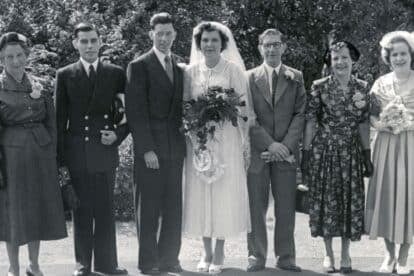Sometimes the biggest transformation isn’t adding something new—it’s removing the thing you thought you needed to relax, connect, or feel like yourself.
You know that moment when you wake up on a Sunday morning and actually remember what happened the night before? Yeah, me neither—at least not for a while. That all changed when I decided to take a year-long break from alcohol. What started as a “dry January” that got way out of hand turned into one of the most eye-opening experiences of my life.
I’m not here to preach or tell you to throw out your wine collection. But if you’ve ever wondered what happens when you press pause on the booze for a full 365 days, buckle up. These ten lessons hit me like a truck—in the best possible way.
Sleep quality improves dramatically

Remember when you thought that nightcap helped you sleep better? Plot twist: it didn’t. Alcohol might knock you out faster, but it’s basically hijacking your sleep cycle and throwing it out the window. I discovered this the hard way during my first few weeks sober.
The science backs this up, too. A 2023 longitudinal analysis from the Older Finnish Twin Cohort followed about 13,850 participants for 36 years. It found that moderate, heavy, and binge drinking were all linked to poorer sleep quality over time, with odds ratios ranging from 1.25 to 1.76.
No wonder I used to wake up feeling like I’d been hit by a bus, even after eight hours in bed. Once I ditched the drinks, my REM sleep came back with a vengeance. Dreams became vivid (sometimes weird, but hey), and mornings stopped feeling like a personal attack from the universe.
Mental clarity and focus increase

The mental fog I didn’t even realize I was living in? Gone. It took about six weeks, but suddenly I could remember where I put my keys, focus during meetings, and actually finish thoughts without losing track halfway through. It’s wild how normalized feeling mentally sluggish has become.
Here’s the cool part: MRI studies show that gray matter in your brain can actually regenerate after months without alcohol. Your brain literally starts rebuilding itself. I went from feeling like I was thinking through molasses to having sharp, clear thoughts again. Problem-solving became easier, and I stopped walking into rooms and forgetting why I was there (well, mostly).
Anxiety and mood stabilize

Turns out, using alcohol to “calm my nerves” was like putting a Band-Aid on a broken pipe. Sure, it worked for a few hours, but then the anxiety came back with backup. Alcohol is a depressant that messes with your nervous system, and boy, does it love to take your emotions for a ride.
Studies found that people who stayed alcohol-free for six months had way lower stress and anxiety scores. Instead of riding the emotional highs and lows that come with drinking and recovering, my moods leveled out. Social situations that used to spike my anxiety became manageable without liquid courage.
Who knew I was actually pretty good at small talk when my brain wasn’t chemically compromised?
Skin and physical appearance improve

Not work-work, but like, cosmetic work. My skin transformed so dramatically that friends genuinely thought I’d had some procedure done. Alcohol dehydrates everything, including your face, and I’d been walking around looking like a raisin without realizing it.
Dermatologists see this all the time—alcohol aggravates conditions like rosacea and causes persistent puffiness. After a few months sober, my complexion brightened up, the constant redness faded, and those fine lines from dehydration started smoothing out.
Weight loss often occurs naturally

I lost 8 pounds in the first three months without changing anything else. Zero additional exercise, no special diet, just cutting out the booze. Alcohol has about seven calories per gram, which puts it right behind fat in terms of calorie density. Those “empty” calories add up fast.
The CDC and NIH have tons of data on this. When you’re drinking regularly, your body prioritizes metabolizing alcohol over burning fat, so those calories from food get stored instead of being used. Plus, let’s be real—drunk me made terrible food choices.
Sober me doesn’t wake up surrounded by pizza boxes and regret. The weight loss was just a bonus, but it felt pretty great to fit into clothes I’d forgotten about.
Relationships become more genuine

Without alcohol as a social lubricant, I discovered which friendships were actually built on shared interests versus shared drinking habits. Some relationships deepened because we could have genuine conversations, and I actually remembered them the next day. Others… well, let’s just say some people weren’t thrilled about my newfound clarity.
The flip side was beautiful, though. Family dinners became more meaningful. Date nights with my partner involved actual conversation instead of just getting buzzed together. I could be present in moments instead of viewing them through an alcohol-tinted lens.
Some friends initially felt judged by my sobriety (I wasn’t judging, promise), but the real ones adjusted, and our connections became stronger.
Energy levels rise and productivity increases

Energy levels through the roof? Check. Productivity that actually made me proud? Double check. Without hangovers dragging me down, mornings transformed from survival mode to “let’s tackle this day” mode. A systematic review in Frontiers in Psychology found that many neuropsychological functions in adults with alcohol use disorder recover within 6–12 months of abstinence.
I started waking up at 6 AM voluntarily. Voluntarily. Old me would have been horrified. But when you’re not spending half your energy recovering from the night before, you have so much more left for everything else. Projects I’d been putting off for months suddenly felt doable.
Creative pursuits that had been gathering dust got dusted off. It was like someone had given me extra hours in each day.
Financial savings add up quickly

Ten bucks on drinks twice a week? That’s over $1,000 a year, and that’s being conservative. Most nights out cost way more than $10, and that’s not counting the Uber rides, late-night food runs, or those overpriced cocktails that taste like candy but cost like liquid gold. NerdWallet’s alcohol spending calculator will make your eyes water.
I redirected that money toward things that actually lasted—a vacation fund, better groceries, hobbies I’d been wanting to try. Instead of literally pissing money away (sorry, had to), I was building something. Some months, I saved $300+ just from not drinking.
That’s real money that could go toward debt, savings, or experiences that I’d actually remember. FYI, drunk me was terrible with money in general.
Physical health markers improve

The health improvements showed up fast and were measurable. Blood work that had been creeping toward concerning became normal again. A BMJ Open study found that after one month of abstinence, participants showed a 25.9% reduction in insulin resistance. My doctor was genuinely impressed.
Blood pressure normalized, liver enzymes that had been elevated dropped back into healthy ranges, and my resting heart rate improved. These weren’t changes I could feel day-to-day, but seeing the numbers on paper was powerful motivation to keep going. My body was literally healing itself once I stopped regularly poisoning it. Revolutionary concept, right?
You realize how normalized drinking is in society

Holy moly, is drinking embedded in everything? Work happy hours, dinner invitations, celebrations, commiserations, Tuesday afternoons—there’s literally always a reason to drink. Taking a step back made me realize how automatic and expected alcohol consumption is in our culture.
This awareness was both liberating and sometimes isolating. I had to learn how to navigate social situations without my usual crutch, find new ways to celebrate and unwind, and sometimes politely decline invitations that revolved entirely around drinking. It forced me to get creative about socializing and discover what I actually enjoyed doing beyond sitting in bars.
Some of my favorite new activities happened because I was sober enough to try them and remember if I liked them.
The year that changed everything

Looking back on those twelve months, I’m honestly shocked by how much has changed. I went in thinking I’d lose a few pounds and save some money. I came out with better sleep, clearer skin, improved relationships, actual energy, and a completely different relationship with alcohol and social expectations.
Am I completely sober forever? That’s still TBD. But this year taught me that most of what I thought alcohol was doing FOR me, it was actually doing TO me. If you’ve been curious about taking a break—whether it’s a month, a season, or longer—these benefits start showing up faster than you’d think.
Disclaimer – This list is solely the author’s opinion based on research and publicly available information. It is not intended to be professional advice.
How Total Beginners Are Building Wealth Fast in 2025—No Experience Needed

How Total Beginners Are Building Wealth Fast in 2025
I used to think investing was something you did after you were already rich. Like, you needed $10,000 in a suit pocket and a guy named Chad at some fancy firm who knew how to “diversify your portfolio.” Meanwhile, I was trying to figure out how to stretch $43 to payday.
But a lot has changed. And fast. In 2025, building wealth doesn’t require a finance degree—or even a lot of money. The tools are simpler. The entry points are lower. And believe it or not, total beginners are stacking wins just by starting small and staying consistent.
Click here, and let’s break down how.
16 Grocery Staples to Stock Up On Before Prices Spike Again

16 Grocery Staples to Stock Up On Before Prices Spike Again
I was in the grocery store the other day, and it hit me—I’m buying the same things I always do, but my bill keeps getting higher. Like, I swear I just blinked, and suddenly eggs are a luxury item. What’s going on?
Inflation, supply-chain delays, and erratic weather conditions have modestly (or, let’s face it, dramatically) pushed the prices of staples ever higher. The USDA reports that food prices climbed an additional 2.9% year over year in May 2025—and that’s after the inflation storm of 2022–2023.
So, if you’ve got room in a pantry, freezer, or even a couple of extra shelves, now might be a good moment to stock up on these staple groceries—before the prices rise later.






